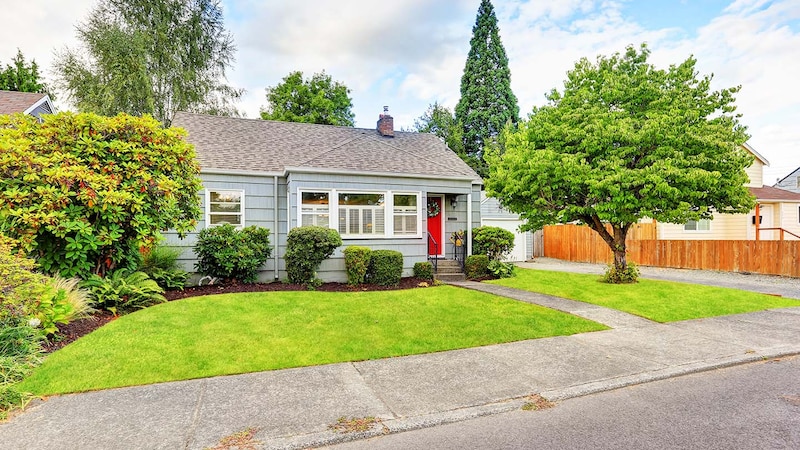Joint mortgage: What it is and how to apply

Quick insights
- A joint mortgage is a mortgage shared by two or more people. It allows applicants to combine incomes and assets, potentially qualifying for a higher loan amount. It also enables shared financial responsibility, making homeownership more accessible.
- Joint mortgages come with challenges like credit risks, combined debt-to-income ratios and legal arrangements. All parties are fully liable for the mortgage, and disagreements or life changes (e.g., selling, divorce or death) can complicate matters.
- Before applying, have honest discussions about finances, future plans and potential scenarios. Consulting legal and financial professionals can help you get a clear understanding of responsibilities and options.
If you're buying a home, you may have considered taking the leap with a partner or a friend. A joint mortgage is an option worth considering for people who want to combine assets and qualify for a mortgage together.
Although the process may seem simple, you should consider several questions before you apply for a joint mortgage, regardless of who you apply with. A mortgage is a big commitment, so you want to make sure you know what you're getting into before you sign on the dotted line.
What is a joint mortgage?
A joint mortgage is exactly what it sounds like: a mortgage agreement shared by two or more people. It's important to understand that a joint mortgage is different from joint ownership.
Joint ownership means both parties own the home and refers to the names on the title. This could mean they bought a home together, one person was added to the title after the home purchase or more than one party gained ownership of the home through a gift or inheritance.
A joint mortgage refers to the names on the application of who will be responsible for the repayment of the loan.
Both joint ownership and joint mortgage involve shared ownership of the home, but the application process for each may be different.
Why consider a joint mortgage?
Joint mortgages offer some potential advantages to borrowers:
- Potential to qualify for a higher mortgage amount: A joint mortgage looks at the income and assets of all parties on the mortgage application. In other words, if you and your partner apply for a home loan, the lender considers both incomes. The combination of incomes could increase your lending limit and allow you to qualify for additional homes in higher-value real estate markets.
- Shared financial responsibility: If you’re interested in becoming a homeowner but aren’t sure you can shoulder the full weight of a mortgage on your own, then a joint mortgage might be able to help. Splitting mortgage payments with a co-borrower can help, but you’ll want to have clear stipulations in place for what might happen should one of you want to sell.
- Chance to earn equity: Applying with others can help you qualify for a mortgage you otherwise wouldn’t have. This can mean the difference between earning equity in your property versus continuing to pay rent.
- Tax benefits: In some cases, joint owners will benefit from sharing tax deductions on mortgage interest and reducing each individual’s responsibility for property taxes.
Who can apply for a joint mortgage?
Almost anyone can apply for a joint mortgage. Here are some common scenarios where people apply for joint mortgages:
- Spouses: It’s quite common for married couples to apply for a mortgage together.
- Parents and children: When young adults are starting out, they may not qualify to buy a home on their own. They might have saved enough to afford a down payment, but don't have their credit history established yet. In this case, a parent-child joint mortgage is possible to assist with the loan.
- Unmarried couples: You don’t have to be married to apply for a mortgage as a couple. If a mortgage seems out of reach as individuals, couples may find that combining finances makes it possible.
- Friends: Friends often rent together to save money, but buying could be a more financially-savvy option. A joint mortgage between friends could result in the same or lower monthly payments compared to renting, depending on the home they buy.
One common question about joint mortgages is whether more than two people can apply. There’s no legal limit to how many people can be on a mortgage, though some lenders might have restrictions.
What are the disadvantages of a joint mortgage?
While joint mortgages can make homeownership more accessible, they're not without drawbacks. Let's walk through the potential pitfalls you should consider before signing on the dotted line.
Credit risks
When you apply for a joint mortgage, both applicants' credit scores come under scrutiny. If your partner has poor credit, it could drag down your application or result in higher interest rates. Even worse, any missed payments will hurt both of your credit scores going forward.
Complicated legal arrangements
Joint mortgages involve complex legal structures that can be confusing. You'll need to understand the difference between joint tenancy and tenancy in common, which affects what happens if one person dies or wants out.
A joint mortgage doesn't always mean joint ownership
Here's a surprise: being on the mortgage doesn't automatically make you an owner. The mortgage and the property deed are separate documents, so make sure both names appear where they should. This surprising factor can also complicate decisions like whether to sell or refinance.
You’re responsible, regardless of the other person
If your co-borrower stops paying, you're responsible for their portion of the mortgage payments in addition to your own. This rule applies even in extreme circumstances, for example, if they pass away. Failure to pay the full mortgage amount can damage your credit and potentially even lead to foreclosure.
What are the requirements for a joint mortgage?
Like any mortgage, lenders look at a variety of factors when determining if you qualify. In the case of a joint mortgage, they will look at more than one set of applicant information. For joint mortgages, the lender analyzes the information for all parties, including:
- Income and assets: One of the top reasons people apply for a joint mortgage is so they can show more than one income. Lenders will look at the income and assets for all parties.
- Credit scores: Because a joint mortgage considers the credit scores for both parties, whose credit will be used on a joint mortgage application is a common question. The answer is that terms will usually be based on the lowest credit rating. The downside is that if one person has poor credit, it will negatively affect the mortgage rates and terms.
- Employment history: Your lender looks at the employment history for all applicants. For most people, this isn't a big deal. But if one applicant doesn't have a history in their current job field, or is currently unemployed, between jobs or recently self-employed, it can make the application a bit harder.
- Debt-to-income ratio: Your debt-to-income (DTI) ratio helps lenders determine risk. For example, if you have a lot of debt compared to your income, lenders may worry you won't be able to pay back your loan. When two or more parties apply for a mortgage, the lender typically looks at combined income in relation to combined debt.
How to apply for a joint mortgage
Whether you're buying with a partner, friend or family member, here's how the process works.
1. Figure out your finances
Sit down together and decide on your budget. How much can you comfortably afford for monthly payments? What's your target price range? Don't forget to factor in closing costs, property taxes, down payment and insurance.
2. Find a lender and get preapproved
Joint mortgage pre-approval gives you a clear picture of how much you can borrow together and shows sellers you're serious homebuyers. All applicants' credit scores, incomes and debts will be evaluated as one combined application.
3. Find the home you wish to buy
With your budget locked in, start house hunting! Since you're buying together, make sure both parties agree on location, size and features that matter most.
4. Apply for a mortgage
Once you've found "the one," it's time to submit your formal application. Your lender will verify all the information from your pre-approval and order an appraisal.
Factors to consider before you apply for a joint mortgage
A joint mortgage may seem like a great idea. And in many cases, it is. But you should consider some additional factors before you agree to finance a home together and apply for a joint mortgage.
What happens if one party wants to sell?
Buying a home with another person offers great long-term benefits. But what if a time comes when one of you wants to sell and the other doesn't. Before you seal any deals, come up with an agreement about how you will handle this scenario before it ever happens. If it's a point of contention, you need to think about whether you want to go into a binding agreement with this person.
What happens if you get a divorce or break up?
Joint mortgages are quite common among married and unmarried couples, so what happens if you divorce or split up?
There are a few options. You can sell the home and split the proceeds according to your ownership agreement. Another option is for one partner to buy out the other’s share, which requires mortgage refinancing and property valuation. Some couples may even choose to maintain joint ownership temporarily, though this creates ongoing financial ties.
Both parties remain legally responsible for mortgage payments regardless of who lives at the property. Missing payments affects both credit scores. Consider consulting divorce attorneys and financial advisors early to understand your rights, tax implications and the best path forward for your specific situation.
What happens if someone dies?
If one of the people on the mortgage dies, the other will continue to be responsible for paying the loan. Another issue is who will own the property. Depending on how you take title, the survivor could own the property in full or partial ownership could pass to the deceased party's heirs. Consult a lawyer before buying with another person to make sure you understand your options.
What should you do if a co-borrower can't afford the payments
If your co-borrower can’t afford payments on the mortgage, you have a couple of options.
The easiest (and most obvious) is for you to fill in the gap, paying the balance that your co-borrower can’t afford. Of course, there’s a good chance that your situation isn’t this straightforward.
Contact your lender to find out what your options might be. You may be able to work out an agreement in the form of a mortgage forbearance. But remember, if you stop making payments beyond the lender’s grace period, you could go into foreclosure and lose your home.
How to get out of a joint mortgage
If you need to get out of a joint mortgage for a reason not mentioned above, you have a few other options:
- Refinance in the co-borrower’s name: You can remove yourself from the loan if the co-borrower qualifies independently.
- Sell the home and pay off the mortgage: Use the proceeds of the sale to settle the loan entirely.
- Try to qualify for a mortgage assumption: You can transfer the loan to the co-borrower, if the lender approves.
- Buy out the co-borrower: With a buyout, you’ll purchase the other person’s share (or equity) in the home. You will need to have a home appraisal, and you may need a cash-out refinance to access funds.
Still struggling to find a solution? Reach out to a financial or legal advisor who can help you explore alternative options for your situation.
In summary
A joint mortgage is a great option for anyone who wants to buy a home with a partner, but it’s not without its challenges. Joint mortgages mean combined incomes, assets and responsibility.
Before you take the plunge, take the time to have honest conversations, plan for the unexpected and consult professionals to make sure you’re making the best decision for your unique situation. A joint mortgage is, at the end of the day, more than just a financial agreement. It’s a partnership. And done right, it can be the key to unlocking your new dream home.
Ready to get started? Contact a Home Lending Advisor to learn more.



